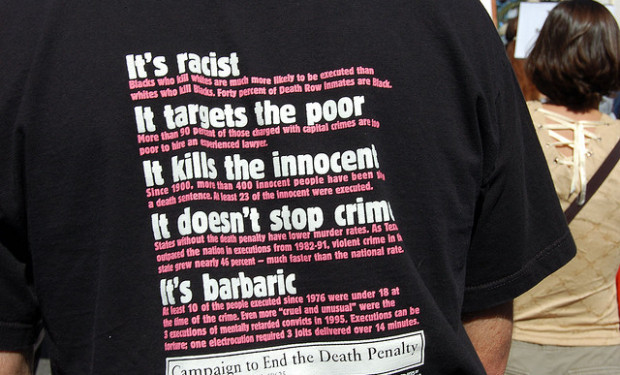States elect to stay executions following controversy over lethal injections
States such as Pennsylvania and Florida have recently elected to halt executions over concerns about the drugs used in lethal injections, but not without opposition from lawmakers.
This article is the third in a three-part series on issues surrounding the death penalty. You can read Part One and Part Two here.
On February 18, United States Attorney General Eric Holder voiced his support for states to halt all pending executions until the Supreme Court makes a decision in Glossip v. Gross, an Oklahoma case currently pending before the Court rising out of the botched execution of Clayton Lockett in April 2014. Although states such as Georgia and Texas have executed multiple inmates, some states have, consistent with Holder’s advice, begun to stay executions until the controversy surrounding lethal injections is resolved.
“This decision is based on a flawed system that has been proven to be an endless cycle of court proceedings as well as ineffective, unjust, and expensive.”
Pennsylvania governor Tom Wolf announced on February 13, 2015, five days before Holder voiced his support for a national moratorium on the death penalty, that Pennsylvania would halt executions until concerns about the effectiveness of capital punishment are addressed.
Wolf made clear, however, that it was not because of compassion to those on death row that he declared the moratorium.
“This moratorium is in no way an expression of sympathy for the guilty on death row, all of whom have been convicted of committing heinous crimes,” Wolf said. “This decision is based on a flawed system that has been proven to be an endless cycle of court proceedings as well as ineffective, unjust, and expensive.”
Wolf’s first step in mandating the moratorium was to grant temporary stay to the execution of Terrance Williams, who was scheduled to be executed on March 4, 2015. Wolf declared that he would grant a reprieve, not a commutation, for inmates who have upcoming execution dates. Williams was convicted of beating a man to death in 1984 when he was just eighteen years old.
Although Florida has not officially declared a moratorium on the death penalty, on the same day that Holder announced his support for the statewide halt of executions, the Florida Supreme Court stayed the execution of Jerry William Correll, who was set to die on February 20. The judges decided that they will wait for the Supreme Court to make its decision in Glossip v. Gross before allowing Correll to be put to death to avoid the potential of an unconstitutional execution. This decision was largely based on the fact that Florida uses the same three-drug cocktail that Oklahoma used, which led to Lockett’s botched executed. Correll was sentenced to death for stabbing to death his ex-wife, five-year-old daughter, and former mother-in-law in 1985.
On March 3, Georgia stayed the execution of Kelly Gissendaner for the second time. This time, Gissendaner’s execution was stayed due to concerns about the drugs to be used.
Despite the controversy surrounding Wolf’s decision to declare a moratorium on the death penalty in Pennsylvania, his decision is not unique.
These decisions to stay executions have not come without opposition. On March 3, the Pennsylvania Supreme Court agreed to hear a case filed by the Philadelphia district attorney’s office challenging Wolf’s moratorium. On March 4, the day that Terrance Williams was set to be executed, opponents of Gov. Wolf’s moratorium on the death penalty gathered at the state capitol to criticize his decision.
Lawmakers have criticized how Wolf went about implementing the moratorium, stating that he should have approached the legislature to attempt to change the law, or could have filed a lawsuit in court seeking an injunction.
Despite the controversy surrounding Wolf’s decision to declare a moratorium on the death penalty in Pennsylvania, his decision is not unique. Wolf was the fourth governor to halt executions in the past four years. Governor John Kitzhaber of Oregon declared a moratorium on the death penalty in 2011, as did Governor Jay Inslee of Washington in 2014. In Colorado, Governor John Hickenlooper suspended the execution of one inmate in 2013, but questioned the death penalty as a whole and suggested that he may stay further executions.





